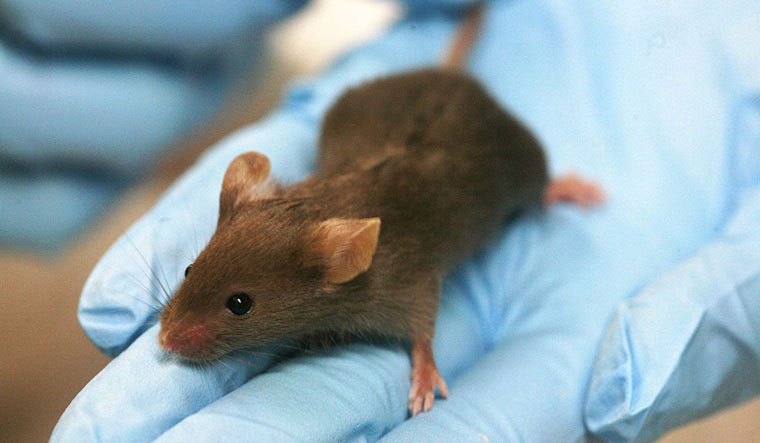
Scientists have for the first time increased the lifespan in mice significantly without any genetic modification.
The researchers at the Spanish National Cancer Research Centre (CNIO) created the first mice born with much longer telomeres than normal in their species.
Given the relationship between telomeres and ageing―telomeres shorten throughout life, so older organisms have shorter telomeres―scientists launched a study generating mice in which 100 per cent of their cells had hyper-long telomeres.
The findings, published in the journal Nature Communications, shows that the animals with hyper-long live longer in better health, free from cancer and obesity.
The most relevant thing is the fact that longevity has been significantly increased for the first time ever without any genetic modification, the researchers said.
“This finding supports the idea that, when it comes to determining longevity, genes are not the only thing to consider,” said Maria Blasco, Head of the CNIO Telomeres and Telomerase Group.
“There is margin for extending life without altering the genes,” Blasco said.
Telomeres form the end of chromosomes, in the nucleus of each cell in the body. Their function is to protect the integrity of the genetic information in DNA.
Whenever the cells divide the telomeres, they are shortened a little, so one of the main characteristics of ageing is the accumulation of short telomeres in cells.
“Telomere shortening is considered to be one of the primary causes of ageing, given that short telomeres cause ageing of the organism and reduce longevity,” the researchers said.
The team has already shown in diverse studies that avoiding the shortening of telomeres through the activation of the telomere lengthening enzyme, telomerase, extends longevity without any secondary effects.
However, up to now, all interventions on the length of telomeres have been based on altering the expression of genes, through one technique or another.
Previously, the CNIO group developed a gene therapy that fosters the synthesis of telomerase, obtaining mice that live 24 per cent longer without developing cancer of other illnesses associated with age.
The new thing is that there has been no genetic alteration in the mice born with hyper-long telomeres, the researchers said.
In 2009, researchers worked with the so-called IPS cells―cells from an adult organism which have been given back pluripotency or the capacity to generate a full organism.
They observed that after a certain number of divisions in culture plates, these cells acquired telomeres twice as long as normal.
They confirmed that the same occurred in normal embryonic cells―also pluripotent―as they are kept in cultivation after being removed from the blastocyst.
The team found that during the pluripotency stage, there are certain biochemical marks on the telomeric chromatin that facilitate their lengthening by the telomerase enzyme.
For this reason, the telomeres of pluripotency cells in cultivation were extended to twice the normal length.
The group demonstrated that the embryonic cells with hyper-long telomeres could produce live mice.
However, these first animals were chimerical, or in other words, only part of their cells―between 30 per cent and 70 per cent―came from embryonic cells with hyper-long telomeres.
Their good health may be attributed to the proper functioning of the rest of the cells, with normal telomeres.
In the latest study, the researchers managed to obtain hyper-long telomeres in 100 per cent of mice cells.
Mice lifespan extended significantly without gene modification
![Mice lifespan extended significantly without gene modification]() Reviewed by audrinadaniels
on
October 21, 2019
Rating:
Reviewed by audrinadaniels
on
October 21, 2019
Rating:


No comments: